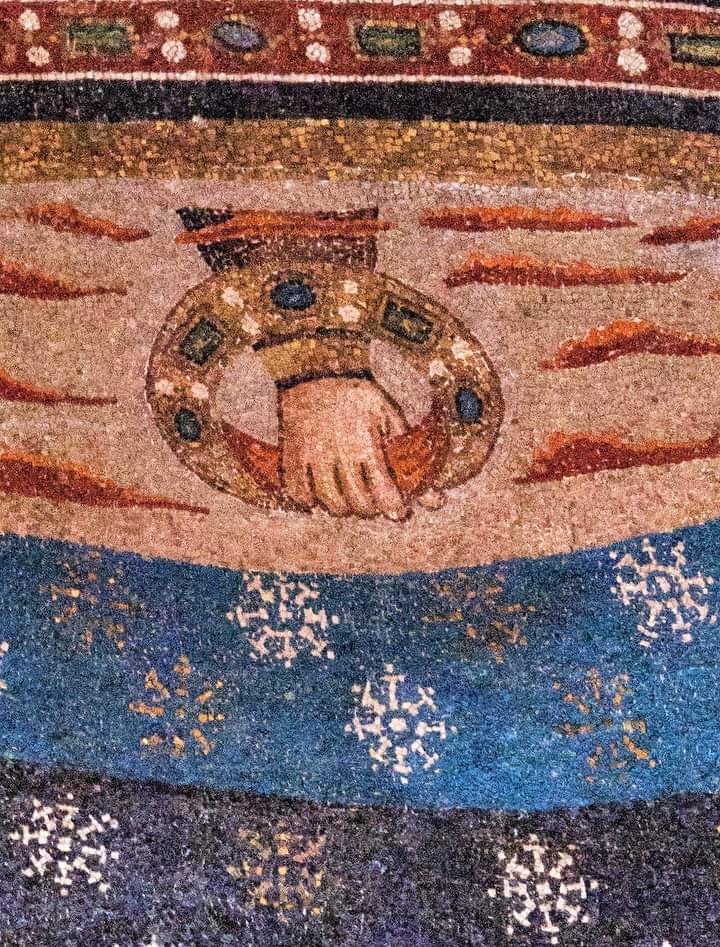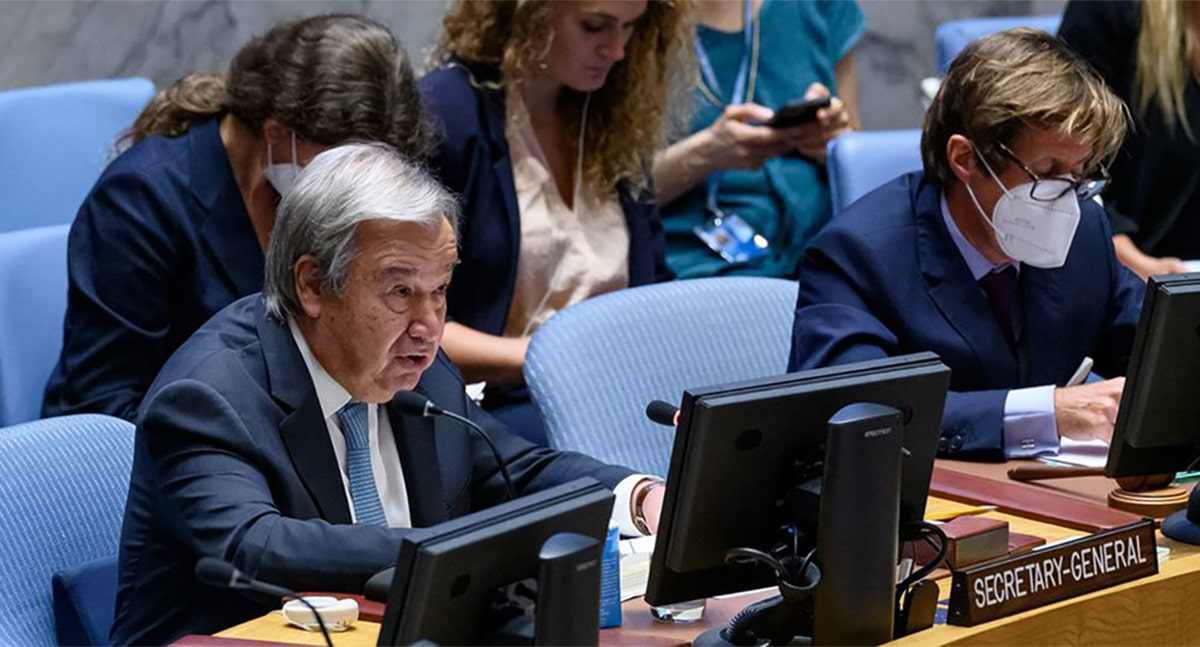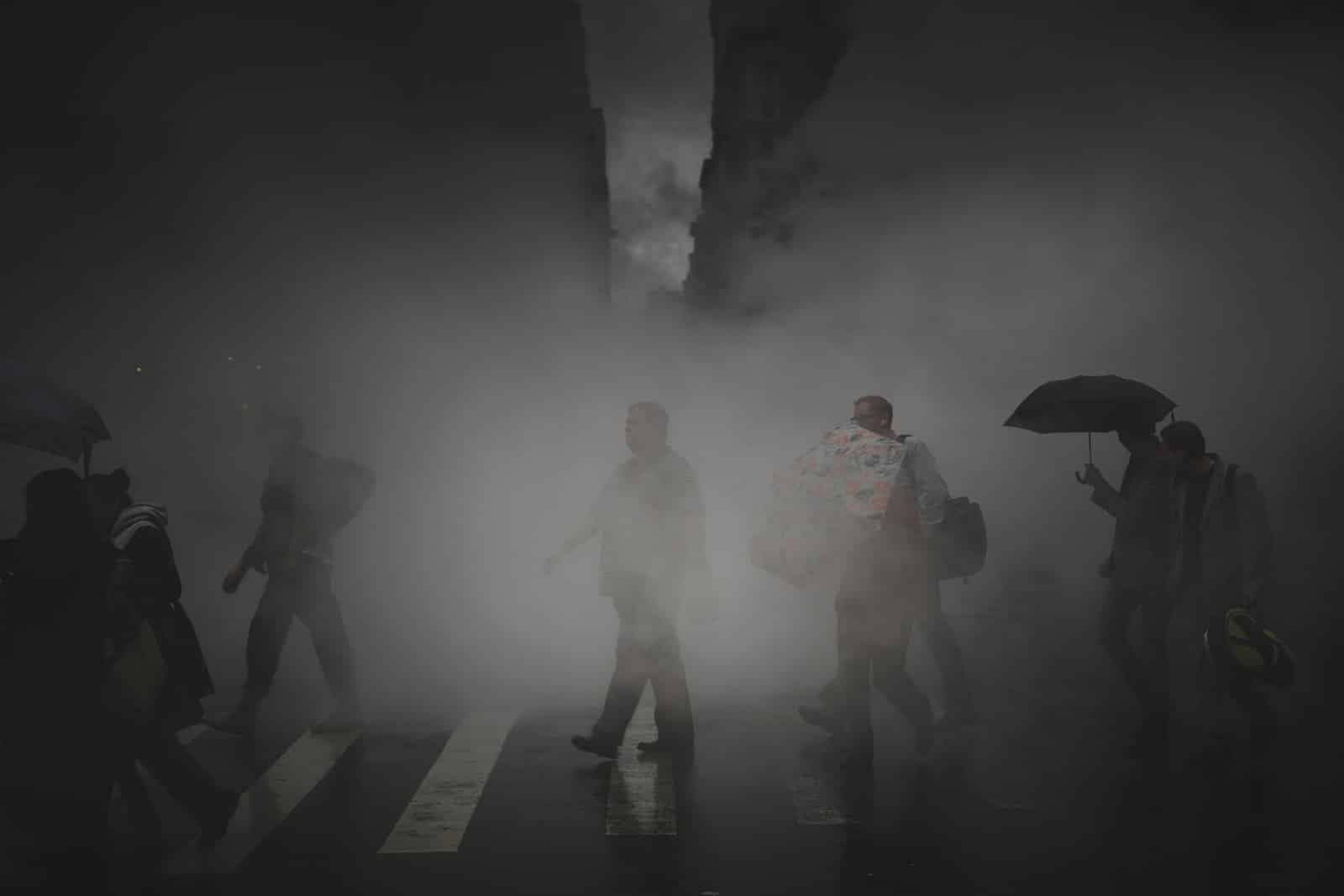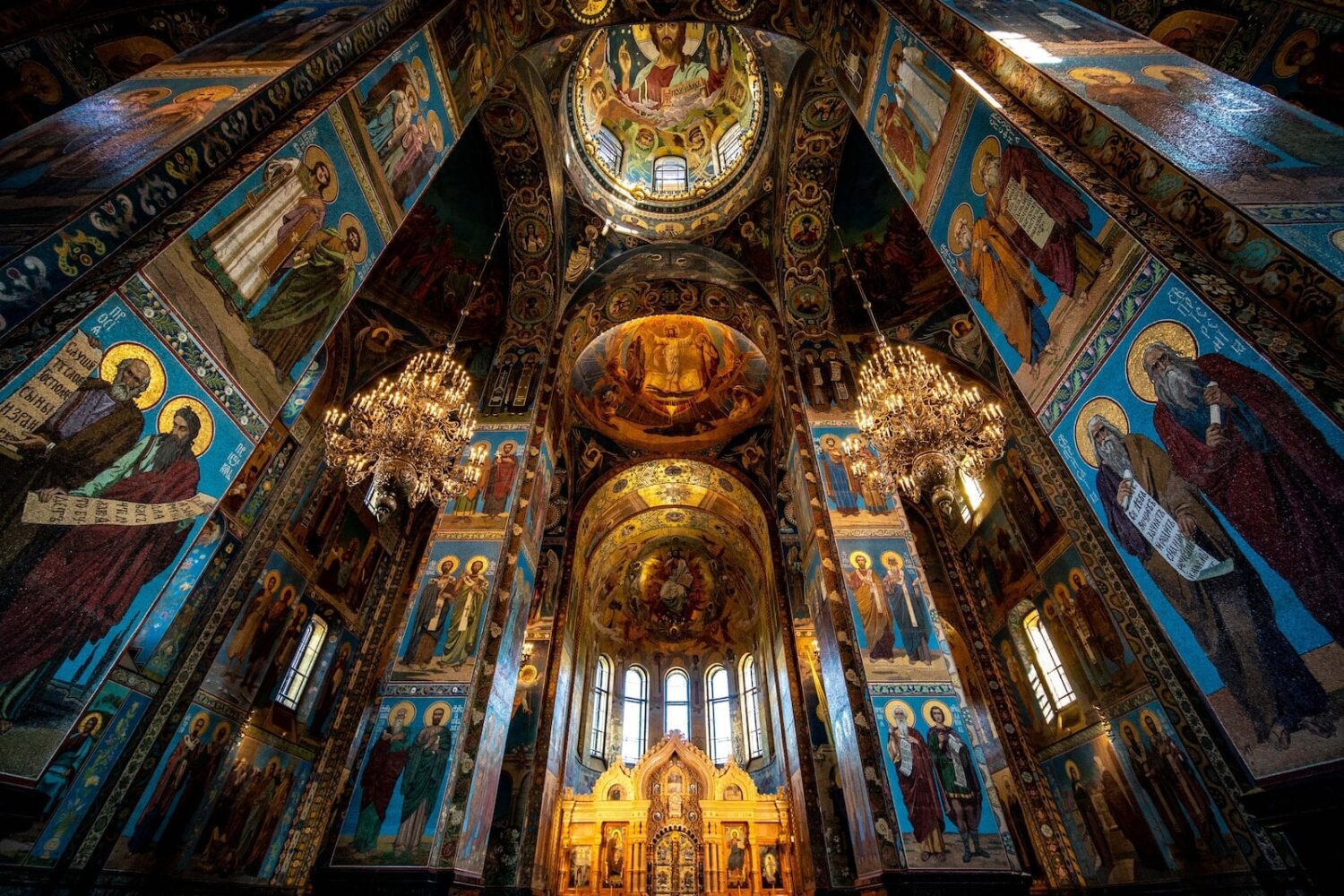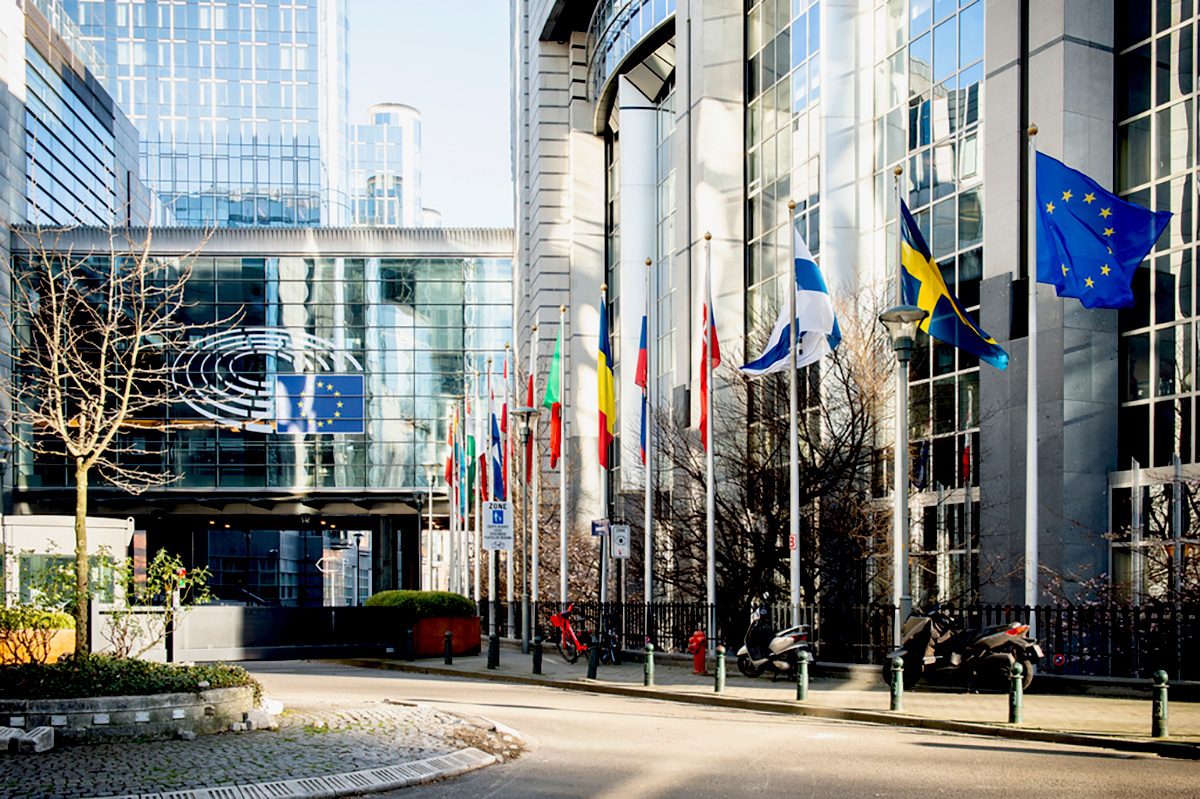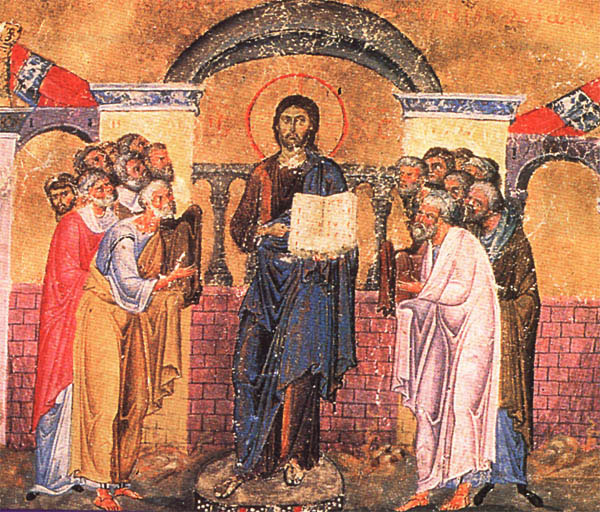By Boris Vysheslavtsev
In his ethical activity and judgments, man has no right to take the viewpoint of Providence. He has no right to judge sub specie aeternitatis [from the point of view of eternity], appropriating God’s point of view as if he were seated on the throne with Him. Otherwise, he may imagine himself to be a sun shining equally on the good and the bad. To begin to allow and tolerate evil as a manifestation of free will, as God does with man. It may even begin to affirm the necessity of evil in the development of world tragedy, its reasonableness in the ways of Providence. And finally to enter the role of villain and traitor, believing that this role is necessary in the world tragedy foreseen and intended by the Creator and His providence. And the more terrible it is, the greater the humility and self-abasement and self-sacrifice of the actor who performs it for the sake of the celebration of righteousness and justice, for the sake of the celebration of Providence. Such was the role of Judas. “Beata culpa” [blessed guilt] would not be a fault at all, but rather a merit, but if only Judas could foresee the way of Providence and had the right to stand from the point of view of historical necessity, i.e. of the very Providence. The Apostle Paul is aware of these dialectical difficulties and poses the problem as follows: how can sinners be punished, if God’s righteousness and justice are best revealed through their injustice? “Should we not then do evil that good may come?” (Rom. 3:8).
If temptations must come into the world, then someone must take the blame for it—bring them into the world, though knowing that it would have been better (subjectively, not objectively) not to have been born for that role. Indeed, there is no more outrageous ambiguity, more outrageously quaternio terminorum [the fallacy of the four terms, i.e., deductive logical fallacy] than that “ought” and “ought.” In one case, this is a judgment of divine providence about historical destinies (temptations must come into the world), and in the other – a judgment of man about his moral duty, about his ultimate task in time and space: he must take the blame upon himself.
However, this is not a logical fallacy and it is not a sophistry: the whole problem is clearly contained in the two aspects of the obligatory. 1) the divine necessity of Providence and 2) the human necessity of moral action. In his moral obligation, man has no right to stand from the point of view of what is obligatory in the sense of Providence, from the point of view of historical necessity or the necessary degrees of development of the Absolute Spirit. It has no right to stand on the standpoint of Hegel’s historiosophy (that is, the standpoint of the “Absolute Spirit”) or Leibniz’s theodicy. It is equally vulgar and immoral for him to say: everything goes for the better in this best of all worlds, and history is progress in the consciousness of freedom. For it means to justify the crimes of history—for example, the atrocities of revolution—as necessary stages in the development of liberty. If “everything goes for the better”, then “everything is allowed”.
This thought can also be reached from the opposite side: man cannot stand on the point of view of Providence and absolute judgment even when the latter corresponds to his human understanding of good, evil and justice. For example, his thirst for revenge, to exterminate the villain, cannot be interpreted as a demand for divine vengeance. In contrast to this, the words sound: Vengeance is Mine, I will repay. And God rewards in another way and not then, and not where we think and want. And we must not justify the executioner by identifying his action with the will of Providence and divine wrath, as Joseph de Maistre does. It is for this very reason that every executioner is more odious than every villain, because he appropriates to himself the sanction of infallibility, the sanction of Providence, and the “objective spirit,” while the villain bears upon himself the manifest stamp of sin and crime, and that is more humble and – true.
Man has no right either to conduct the terrible judgment, or to anticipate it. The parable of the weeds testifies to this: what “objectively” seems insignificant and unnecessary to him cannot be destroyed for the sake of fulfilling absolute justice (for example, in Raskolnikov – the killing of the evil old woman and in general the whole problem of great personalities fulfilling the will of Providence). As a terrible judgment, absolute Justice acts not through us, but through its absolute servants – the angels. This is revealed through the parable.
In this way, as if by itself the following conclusion is imposed: Penetration into the divine plan of Providence does not justify anything and does not condemn people for their actions, does not contain any anthropodycy, because evil remains evil and it should not be “justified ”, that is, to become a right because of no good and necessary plan of Providence. Moreover, the evil leading to the best in this best of all worlds becomes a great evil; the evil that leads to “progress”, to a just system, is the worst evil – an evil that dares to justify itself by imagining that it is good. In this case, it is not the evil that is justified, but the good derived from it that is compromised. It is not the end that justifies the means, but the means that condemn the end. Any teleological rationalization of the historical process is an immoral enterprise.
Rationalist theodicy is morally unfit for man. But is it fit for God? After all, does it provide “justification of the Deity?”
N. A. Berdyaev’s remarkable article on theodicy in Vol. 7 of the present journal. It contains two main ideas:
1. Denial of false theodicy, of abstract monotheism, of the idea of a motionless, blissful, Eleatic and non-tragic God, creating the world and all the tragedy in it, while remaining isolated and passionless. Such a God should not be justified – this is an evil demiurge, and atheism is right in relation to him (pp. 56-57).
2. Confirmation of a possible theodicy, as a tragedy of God himself, as God’s sacrifice – suffering of God, Lord’s passions. God is love and God is freedom, and love and freedom are sacrifice and are suffering. Such a conception presupposes, of course, the God-humanity of Christ and the idea of the godlikeness of man.
In what sense is positive theodicy presented here? Properly – in only one way: God is protected from the reproach that he “left the bliss for Himself, and the suffering for the creation” (p. 55). Here God loves man and suffers with him.
Can such a decision be recognized as exhaustive? In the negative part, it seems to sound a strong thought: perfection cut off from the world is impossible. Perfection alongside the world, which lies in evil, and in the capacity of the original source and Creator of this world, is, of course, imperfection. If it (perfection) rejoices in its self-sufficiency, it is the worse for it, the more imperfect it is. Of course, perfection here is completeness and completeness (τέλος and πλήρωμα), and it cannot leave anything beyond itself, it must take everything upon itself and receive within itself. Perfection has to accept in its heart, to contain all the evil and suffering and tragedy of the world.
But here comes the difficulty – perfection filled with imperfection! Fullness filled with deficiencies! God, who took evil into Himself! And finally suffering, dying, experiencing tragedy! All these negative values (evil, suffering, death) turn out to be contained in the positive value of the Absolute Good – of God as perfection! But isn’t the tragic-suffering God an absolute contradiction? Is the category of tragedy applicable to God?
One thing is certain: in Christianity there is an idea of a “suffering God” and of the tragedy of God and man. The remarkable thing here is that every tragedy is divinely human and there is simply no other tragedy in its own sense. It is tragic that man is eternally united with God and eternally separated from Him (My God, my God, why have you forsaken me?) – eternally carrying within himself the holy and divine, and eternally falling away and losing. Such is the nature of the ideal world, of the idea. (“Sie ist nur da, inwiefern man Sie nicht hat und sie entflieht, inwiefern man sie fassen will” – Fichte).
Plato’s Eros is neither just a god nor just a man, but a “god-man” and therefore tragic and his fate is the tragic fate of Psyche. It is tragic for God to unite with human nature and it is tragic for man to unite with God. The complete absence of tragedy would be the separation of man from God, the absolute self-sufficiency of man who does not suspect God, and the absolute self-sufficiency of God who does not look at man. In the mixing and joining of the incompatible lies the tragedy. That is why, for the gnostic Basilides, the tragedy of the world process ends with an absolute separation, isolation of the spheres: the being separated from God will not suffer, because it is wrapped in the “veil of great ignorance”.[1]
Suffering and tragedy have their source in the all-pervading oneness. If we leave the opposites alone, without connecting them with threads (Plato), if we do not gather them into one, the phenomenon of incompatibility, contradiction, tragedy would not exist. The tragic contradiction can be formulated differently: enemies in love (Romeo and Juliet), innocent guilt (Oedipus), the destruction of what is worthy of life and happiness. But the main tragedy is the accusation and punishment of the sinless and innocent. This tragedy is, so to speak, unbearable, and the question arises: how does God tolerate it? Here the question of theodicy is posed anew: why should the world become a tragedy?
To answer, we must first of all see that the world is truly a tragedy, experience and intuitively penetrate the essence of the tragic. Is it necessary to prove that the world is a tragedy, that life is a tragedy? Moral experience convinces us that the whole world lies in evil, and yet the life of the world is of supreme value, the cosmos is beauty, and all created, all truly existent, is too good. Here is the tragic contradiction experienced from all sides by the human spirit: with the logical, ethical and aesthetic consciousness. It would be better if the world didn’t exist! And, along with that: No, it better be! To be – that’s more than anything! Being is wonderful!
The life of the animal and plant world is full of cruelty, suffering, self-sacrifice, heroism – it is tragic in its essence, because it is hideous and, at the same time, beautiful. The tragedy of nature is in its indifference, and it would not be a tragedy if it did not have the strange radiance of eternal beauty, if it did not awaken in the soul the involuntary recognition (so be it! – And let it…).
However, if we rise to the highest levels of being known to us – to our own life, to the fate of the free man, to the fates of history, then here the essence of life is revealed as a tragedy more vividly than anywhere else. Buddha saw it, Socrates experienced it, Christ raised it to the ultimate god-human height. And each person in his own destiny in some way repeats that of the Son of Man – in not recognizing Him as the Most Beautiful, in the “legalistic” accusations, in the enmity of the Pharisees, in the betrayal of the disciple, in the Way of the Cross of life. History is tragic – both in personal biography and in the biography of nations.
If there are other higher superhuman degrees of being, as all religions presuppose, the world of angels, demigods, titans and heroes, even there the highest category of achievement in their lives is tragedy, as is clear from the tragic fate of the most beautiful of angels . Tragedy is the main historical category and, at the same time, the highest category of life in its greatest fullness and richness. Because history must be the history of all life, with all its sides and in all its fullness. If the life of each “I”, of each spiritual being, is a strange combination of necessity and freedom, as we know from our own experience, then the tragedy of history is necessarily the fate of freedom, or freedom under the power of fate. Only a free being can be under the power of fate, only a tragic hero has fate in the full sense of the word. Biological, causal necessity is not fate.
So, we don’t need to prove that life is a tragedy – everyone knows that from experience. Even the experience of happiness does not cancel the tragedy, because it is a moment of the tragedy (for example “Romeo and Juliet”). The demise of supreme and wonderful happiness is tragic, and history, human destiny, knows no undying happiness. Perhaps they will object to us that everyday life is rather comical than tragic, and the very history of nations reveals the “irony of fate” at every step. That is right. But the point is that comedy is also a possible moment of tragedy. He finds a place for himself in every tragedy embracing the fullness of life; after all, the essence of the tragic and the comic, as Plato also hints in his “Pyrrhus”, is the same. The irony of fate is often tragic and the history of nations is a tragicomedy.
And yet it is necessary to prove this statement, it is necessary to assess all its depth and seriousness, because humanity in its significant part is excited by the desire to avoid tragedy by any means, to prove to itself in any way that everything in nature and in history goes well, improves, progresses, evolves, unerringly arrives at the final earthly paradise. The tragedy-free philosophy of history is very widespread and very diverse. Here in the first place is the atheistic theory of the continuous evolution and progress of mankind. Comte, Feuerbach and Marx fully follow this line, which has been pushed since Epicurean materialism and Titus Lucretius Carr. Quite frankly, Epicurus and Lucretius state that the driving nerve of Epicureanism is the desire to destroy every tragedy in life, and above all the tragedy of the encounter with the other world and its forces. On this basis is built the naive optimism of self-sufficient humanity, which has imagined that everything is going for the better and happens by itself by virtue of some immanent laws of development.
Hegel’s formula that history is progress in the consciousness of freedom is also an attempt at a non-tragic philosophy of history – along the path of rationalistic and pantheistic monism, which regards humanity and its science and statehood as the highest degree of absolute spirit, such a philosophy inevitably leads to the atheistic “religion for humanity”, to Feuerbach and to Marx. With the same optimistic rationalism, she assures us that the atrocities in history are only “sacrifices before the altar of freedom”, and by freedom here is meant the celebration of the rational regulation of all life – this is precisely the kind of “freedom” that Marx also understood. Everything is going well, towards a “conscious” and socially well-arranged humanity. How much deeper, and more serious, and closer to tragic reality is the modern form of irreligious understanding of history, such as we see in Spengler: everything grows, blossoms and withers, everything tends to sunset!
However, there are not only atheistic constructions of the non-tragic philosophy of history, which we may call non-tragic anthropodicys; there are also non-tragic theodicies that originate from the understanding of the Deity, but which in their essence are still strikingly close to the first in their naive optimism and rationalism. Teleologically acting nature, teleologically developing humanity, teleologically progressing economy, all this Providence without God, or more precisely, Providence carried out by false deities – all this is replaced by the teleologically acting Providence of the Godhead in the world and in history. The philosophical coincidence is precisely in naive rational teleologism: the causa finalis is also the causa efficiens. Under such conditions, of course, there can be nothing particularly tragic, and in the end everything works out for the better in this best of all worlds.
The rationalistic theodicy of the Stoics was adopted in principle by Leibniz. Providence is basically rational – every aporia and every tragedy is resolved to the end. Only at first sight many things in nature and in history seem to us inexpedient; in fact, Providence has foreseen everything and turned every evil into a means of achieving a greater good. The petty-naive rationalism of the Stoics, who asserted that bugs exist to keep people from sleeping too long, and mice to prevent them from keeping their belongings in disorder, is in principle no different from the grandiose universal rationalism of Leibniz, forced to admit that the guilt of Judas is a “blessed guilt” (beata culpa, qui talem redemptorem exiguit).
In fact, instead of a theodicy, we arrive at the most terrible moral accusation against a Deity, operating on the principle that the end justifies the means, building its kingdom on sin, tears and suffering. If this is how things stand in the “best of all worlds”, all that remains for us, together with Ivan Karamazov, is to reject all worlds – both the bad and the good. Schopenhauer is right: the attempt to bypass tragedy leads theodicy to the most vulgar optimism: all is well in this best of all worlds! The story turns into a moral vaudeville with a happy ending.
Roman Catholic rationalism builds its doctrine of Providence on the foundations of Aristotelian teleologism and the Stoic doctrine of providence. Added to this is the juridical theory of atonement, turning the greatest of all tragedies – Golgotha – into a rationally proceeding and successfully concluding process between humanity and God. Here all tragedy is radically removed: both God is justly satisfied and humanity is redeemed and saved.
The destruction of tragedy here is achieved mainly through the application of legal categories. Tragedy, however, eludes all legal categories: try to think legally about the affairs of Othello or Macbeth and you will arrive at a series of flat platitudes. This shows that the category of tragedy is infinitely higher, more complex and, therefore, irrational than that of law. Perhaps tragedy is the truest expression of the ultimate irrationality of being – concentration and condensation of the greatest and ultimate aporias, because if this incomprehensible impasse (aporia) is not there, then in its own sense there is no real tragedy.
In this sense, science is tragic, in its aporias, and philosophy – in its extreme antinomies (such as Riche’s exclamation in his Metaphysics: “Yes, it is absurd, but what of it, since it exists”), ethics is also tragic – in the endless clashes of values, in its “pereat mundus, fiat iustitia” [let there be justice, even if the world perish], art is tragic – if only because its summit is tragedy, religion is also tragic – in its mysterium tremendum ( it is terrible for man to fall into the hands of the living God), in constant proximity to God and in infinite detachment from Him – in God-forsakenness. The tragedy of all life and of the entire history of the world – the universal, religious, divine and God-human tragedy – contains within itself, as in a focus, the concentration of all impasses, incomprehensibility and contradictions of the world. Here is the problem of problems, the point of collision and incomprehensible unity, here is the point of reconciliation of incompatible opposites. God Almighty holds in His hand that which is irresistibly pushed away. And this reconciliation of the incompatible is experienced as amazement, horror, tragedy; and together with this the hand of God is most strongly felt in him. That is why it is scary to fall into the hands of the living God, and in this fear is the most ancient experience of tragedy.
Only here does that strange spiritual experience find its explanation, that in suffering, in impasse and God-abandonment, the presence of God is felt most strongly – here, in extreme tragedy, the true theodicy is hidden, because this is where God is revealed – in the incomprehensibility of His Providence.
“From my depth (de profundis) I cried to You, Lord!”
Wer nie sein Brot mit Trähnen as,
Wer nie die kummervollen Nächte
Auf seinem Bette weinend sas,
Der kennt euch nicht, ihr himmlsche Mächte!
[2]
The fate of Job clearly reveals that it is precisely in the experience of the deepest tragedy that man’s meeting with Providence takes place, that precisely here – in this last why? – man stands face to face with God, but cannot see His Face. It can be said: where God acts, there everything is incomprehensible to man, and where everything is understandable, there is no encounter with God – there is the immanent world of human calculations and predictions (of a kind of “providence”). A fully unraveled and rationalized “Provision” would cease to be divine – its rational expediency reveals most unequivocally that there is human intent here. In their pretended consolations, Job’s friends are representatives of the world of rational theodicy: they seek to “justify” the Deity, to conceal the gaping abyss of tragic injustice of rational arguments, to find justice and expediency in Job’s fate according to their reason. However, it turns out that there is more truth in Job’s accusations directed at God than in the “justifications” of rational theodicy invented by his friends. Who is it that obscures Providence with meaningless words? This is what God says about all these “theodicies”.
In his tragic experience, Job felt clearly the injustice of these theodicies, and God Himself confirmed the absolute rightness of this feeling. After the categorical condemnation of human “theodicies” obscuring Providence, what does He say to Job? He unfolds before him a series of problems and mysteries of heaven and earth; He reveals Himself, or rather, hides Himself, as the problem of all problems; and then the tragic aporia of Job turns out to be one of the moments in the great crown of divine mysteries. The story of Job cannot be understood and “justified” through the immanent logos of this world, according to the method of Hegel and Leibniz – it has a prologue and an epilogue in heaven, in the other world. And what is happening there (a command given by God to Satanael) is incomprehensible to man and unacceptable to human ethics. This is not a solution, as it may seem to us, but a deepening of the tragedy and problematism – here God is not defined by human concepts of good and evil. After all, for Job, this otherworldly theodicy remains absolutely unknown; God didn’t tell him about her.
The tragedy of Job, as our Church teaches, is indeed a type of Golgotha, because Golgotha is the ultimate expression of the tragedy that can overtake the Son of Man and the sons of men. To see rational expediency and even juridical justice here is to really obscure Providence with meaningless words, and even worse – to obscure the judgment of good and evil (beata culpa!). Any rational and holy will can desire rational expediency and justice. However, this cannot be desired by the most reasonable and most holy will – that of the God-man. For this, the highest human wisdom and holiness, despite all the “theodicies”, was only able to say: let this cup pass me by! Does this mean that Christ failed to see that all is well in this best of all worlds? Or are these words of human weakness? Such a supposition would be most superficial and irrelevant, and it is refuted by: but Thy will be done. The acceptance of God’s will, of Providence, is not due to an awareness of its rational expediency by human reason. In the prayer for the cup, there is no weakness of the will, no limitation of human knowledge, but on the contrary – an absolutely true judgment of a holy will for man: we cannot wish for the God-man to be crucified, we cannot accept that Justice is crucified on the cross, to desire this crime, even in full readiness for suffering and self-sacrifice. Job prayed all the time: let this cup pass from me! Just like Christ – and not because of weakness, but out of awareness of his absolute right. We should not desire a suffering and humiliated righteousness.
The tragedy of Calvary disappears if we recognize one will in Christ (the Monothelite heresy) – only human or only divine. The tragedy is revealed in full depth only in the affirmation of the two wills: human and divine; a statement for which one of the greatest fathers of the Church – Maxim the Confessor – was martyred. If in this cup passing from me the will is expressed, the holy will of the Son of Man, then in your will, not mine, the divine will of the Father is present (I and the Father are one). The actual aporia of tragedy is that human will can be absolutely valuable and holy even when it contradicts the will of the Father, of Providence, when it will not be fulfilled. This is what Job’s friends cannot understand.
(to be continued)
Source: Vysheslavtsev, B. “Tragic Theodicy” – In: Put, 9, 1928, pp. 13-31 (in Russian).
Notes:
[1] Karsavin, L. Holy Fathers and Teachers of the Church, Paris 1927, p. 31.
[2] Who has not shed tears over his bread
Who by his bed, as by a grave
In sleepless nights he did not cry –
He does not know you, oh higher powers!
(Goethe, Wilhelm Meister).



